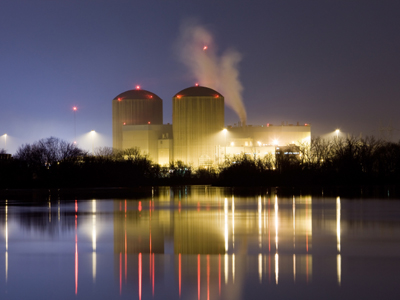

Radioactivity - Nuclear Fission
This Physics quiz is called 'Radioactivity - Nuclear Fission' and it has been written by teachers to help you if you are studying the subject at senior high school. Playing educational quizzes is one of the most efficienct ways to learn if you are in the 11th or 12th grade - aged 16 to 18.
It costs only $19.50 per month to play this quiz and over 3,500 others that help you with your school work. You can subscribe on the page at Join Us
Fission means to split so during the process of nuclear fission atomic nuclei split. This process releases energy, which can be used to heat water and turn it into steam. The steam drives a turbine, which is connected to a generator which produces electricity that can be fed into the National Grid. Electricity generated in this way is often referred to as 'nuclear power'.
Ready for more?
not all...
quizzers. Try to win a coveted spot on our Hall of Fame Page.






